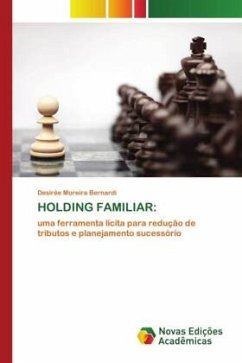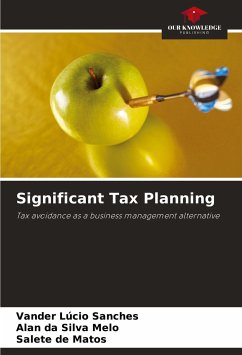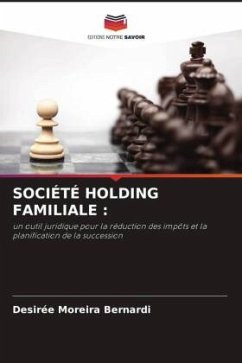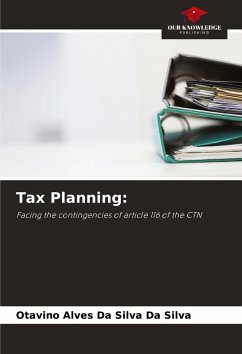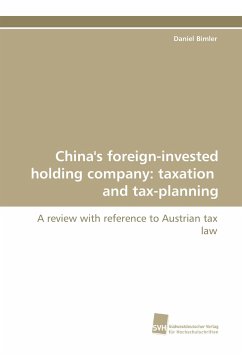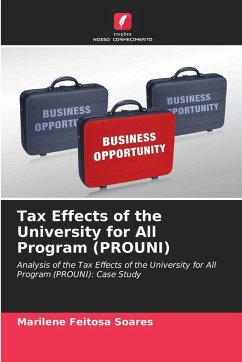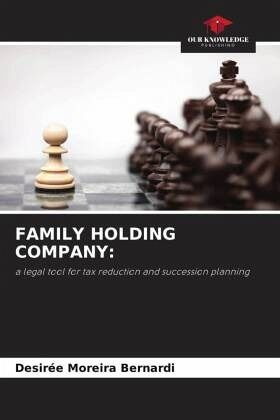
FAMILY HOLDING COMPANY:
a legal tool for tax reduction and succession planning
Versandkostenfrei!
Versandfertig in 6-10 Tagen
29,99 €
inkl. MwSt.

PAYBACK Punkte
15 °P sammeln!
Tax planning is a legal way for companies to make forecasts and thus reduce the tax burden of their companies, because in Brazil the tax burden is quite high, which greatly burdens the financial expenses of institutions. The object of this study was to evaluate legislation in order to analyze the feasibility, advantages and disadvantages of creating a holding company as a succession planning tool aimed at reducing taxes. A literature review covered the concepts and characteristics of family holding companies and the corresponding tax legislation. Comparative tables were also drawn up on taxati...
Tax planning is a legal way for companies to make forecasts and thus reduce the tax burden of their companies, because in Brazil the tax burden is quite high, which greatly burdens the financial expenses of institutions. The object of this study was to evaluate legislation in order to analyze the feasibility, advantages and disadvantages of creating a holding company as a succession planning tool aimed at reducing taxes. A literature review covered the concepts and characteristics of family holding companies and the corresponding tax legislation. Comparative tables were also drawn up on taxation, types of holding companies and their advantages and disadvantages.



